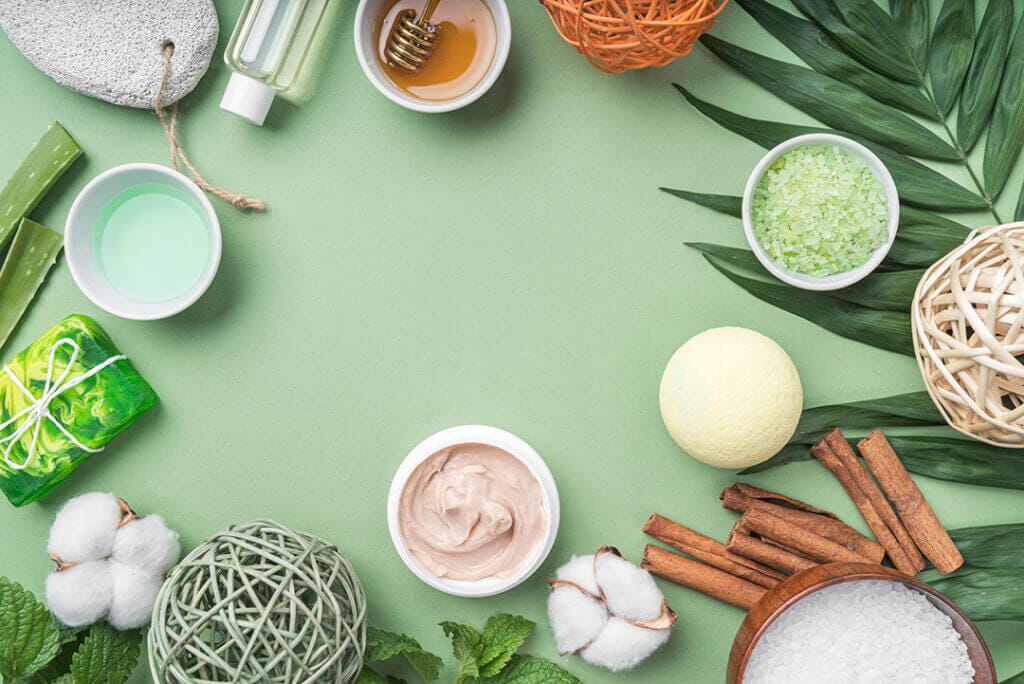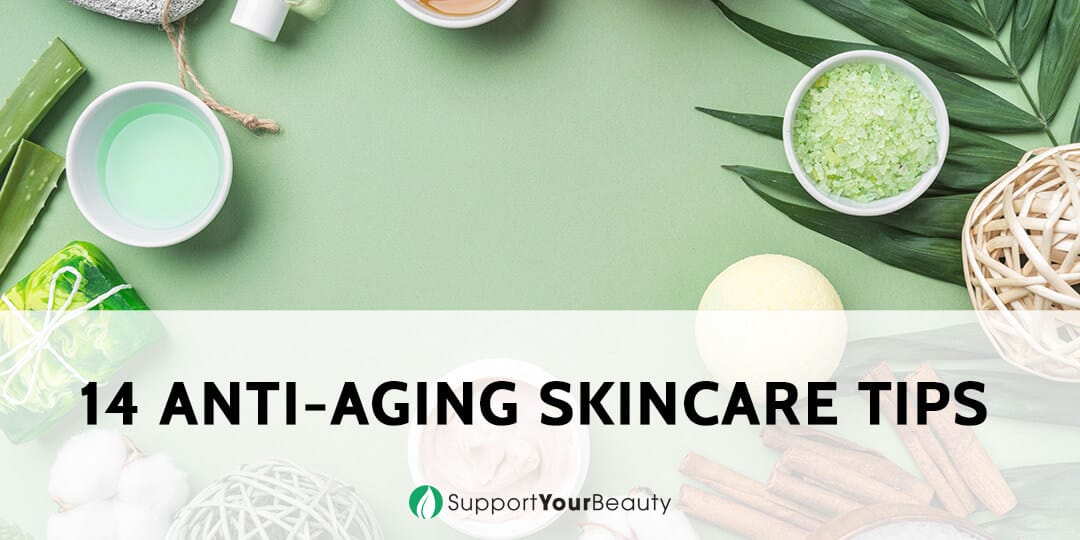Aging is inevitable, but that doesn’t mean you have zero control over how you age. Numerous factors, such as lifestyle choices, genetics, and environmental influences can cause premature skin aging. Fortunately, changing some of your daily habits can slow down or even repair some effects of aging. Here are a few of our top anti-aging skincare tips to help you achieve the healthy, younger-looking skin you desire.
1. Use Sun Protection
The sun’s harmful UV rays cause the skin to age more quickly. That’s why you’ll hear dermatologists expressing the importance of sun protection day in and day out. Sun protection isn’t just necessary at the beach or while lying by the pool. It’s essential to protect your skin anytime you’re outdoors.
An easy way to prevent sun damage is by applying broad-spectrum sunscreen to your face and any parts of the body not covered by clothing. Even on the hottest days, it’s essential to cover as much of your skin as possible with sun-protective clothing. Lightweight pants, shirts, and hats will do the trick. Many sun-protective clothing items advertise an ultraviolet protection factor (UPF) to show they offer the most effective protection.
Of course, the best way to protect your skin from UV rays is to stay out of the sun. Try to find shade, especially between 10 a.m. and 2 p.m. when the sun’s rays are the strongest.
2. Stop Tanning
Tanning prematurely ages the skin, whether lying in the sun or under a tanning bed. Try applying self-tanner to get the bronzed look you seek without the sun’s harmful rays.
3. Wash Your Face Regularly
The average day can do a number on your skin. Dirt, smog, bacteria, and other grime can gather on your skin throughout the day or while sleeping. Wash your face when you wake up in the morning and before bed at night to keep it clean and prevent irritation that can lead to premature skin aging.
4. Don’t Scrub
For years, face and body scrubs filled shelves for their exfoliating abilities. Scrubbing can irritate the skin, worsening conditions such as acne and eczema. Skip the scrubbing and use a gentle facial cleanser next time you wash your face.
5. Reduce Your Stress
Not all factors contributing to skin aging involve outside factors like the sun or bacteria. Stress can cause some skin conditions to flare up, causing irritation and damage. Psoriasis, eczema, rosacea, and acne are a few skin conditions that stress can affect.
6. Match Your Skincare Products to Your Skin
Skin types vary from one person to another. Fortunately, skincare companies understand and create products formulated to differing skin needs. Your skin type may be normal, dry, oily, sensitive, or a combination of several. Using the right products will help your skin feel and look healthier.

7. Stay Hydrated
Dehydrated skin becomes damaged easily and may cause you to look older. Dermatologists recommend drinking less alcohol because it dehydrates the skin and causes damage over time.
8. Exercise Regularly
You’ve probably heard that regular exercise is good for your overall health. It’s good for your skin’s health too. Performing moderate exercise most days of the week provides numerous benefits, such as boosting the immune system and improving circulation. These benefits can give the skin a younger, healthier appearance.
9. Use Moisturizer Regularly
Your skin becomes dryer as you age, and wrinkles and fine lines begin to appear. Moisturizer makes skin look younger by trapping water inside. Dermatologists recommend using a body moisturizer, face moisturizer, and lip moisturizer for the best results.
10. Quit Smoking
Smoking can do a lot of damage to your health, including making your skin look older. Smokers may have a dryer, duller complexion as well as looser skin and premature wrinkling. The leathery skin caused by smoking looks and feels older. Stop smoking to relieve your skin of the toxins known to cause that older-looking “smoker’s face.”
11. Get Plenty of Sleep
Depriving yourself of sleep can cause numerous health problems. It can also contribute to common skin issues that make you look older. Your beauty sleep can help protect against pale skin, dark undereye circles, swollen eyes, droopy eyelids, and more.
Sleep is when your body repairs itself, and that includes your skin. While sleeping, collagen rebuilds, blood flow increases, and the skin repairs some damage caused by UV rays. These can all reduce the appearance of age spots, fine lines, and wrinkles.
12. Improve Your Diet
Many factors that lead to superior overall well-being lead to healthier, younger-looking skin too. For instance, eating healthy foods promotes healthier skin. Examples of healthy foods include vegetables, fresh fruits, healthy fats, and lean proteins.
13. Consider Professional Treatment
It’s common to feel bothered by your aging skin, especially if you feel that your skin is aging prematurely. New skin repair methods such as Botox treatments can tighten skin and smooth wrinkles, offering a more youthful look. It’s essential to receive Botox from licensed medical professionals who specialize in administering the injections.
14. Visit a Dermatologist
Dermatologists are skin experts. They can diagnose skin diseases and offer treatment methods to help your skin look and feel healthier. Visit your dermatologist to learn about your skin type and the best ways to safely and effectively care for it.
A dermatologist may also help you spot skin cancer early while it’s treatable. This can prevent you from needing to undergo more invasive procedures as skin cancer progresses.
It’s Not Too Late
It’s never too late to make the lifestyle changes that can lead to healthier, younger-looking skin. In fact, protecting your skin from the sun, getting plenty of sleep, and the other healthy habits listed above may even repair some skin damage. There’s no better time than now to take the preventative steps toward slowing skin aging.
Author bio: Derma Luxe Aesthetics is a leading med spa in Chicago. The team of licensed experts are dedicated to helping you achieve the youthful radiant appearance you desire.

